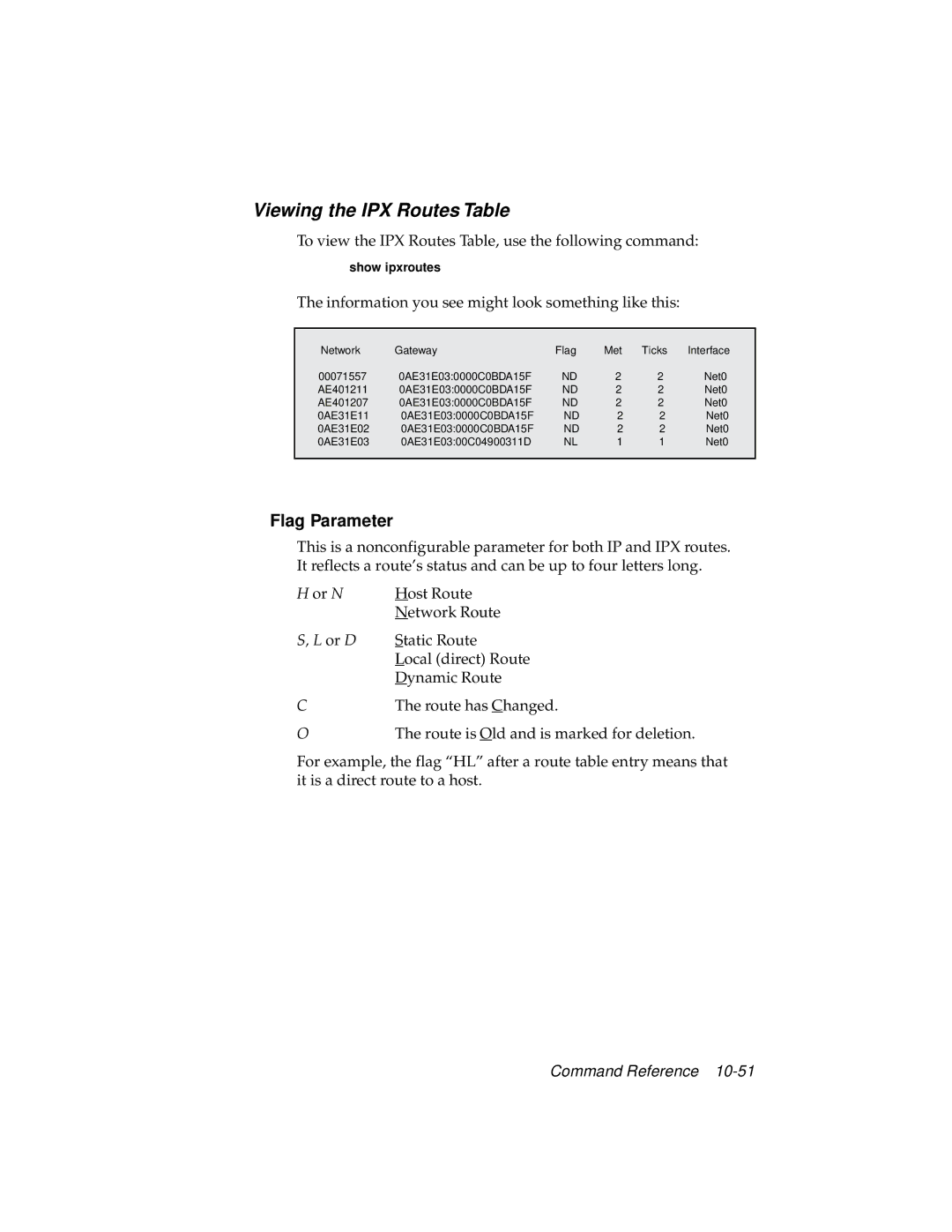Viewing the IPX Routes Table
To view the IPX Routes Table, use the following command:
show ipxroutes
The information you see might look something like this:
Network | Gateway | Flag | Met | Ticks | Interface |
00071557 | 0AE31E03:0000C0BDA15F | ND | 2 | 2 | Net0 |
AE401211 | 0AE31E03:0000C0BDA15F | ND | 2 | 2 | Net0 |
AE401207 | 0AE31E03:0000C0BDA15F | ND | 2 | 2 | Net0 |
0AE31E11 | 0AE31E03:0000C0BDA15F | ND | 2 | 2 | Net0 |
0AE31E02 | 0AE31E03:0000C0BDA15F | ND | 2 | 2 | Net0 |
0AE31E03 | 0AE31E03:00C04900311D | NL | 1 | 1 | Net0 |
|
|
|
|
|
|
Flag Parameter
This is a nonconfigurable parameter for both IP and IPX routes. It reflects a route’s status and can be up to four letters long.
H or N | Host Route |
| Network Route |
S, L or D | Static Route |
| Local (direct) Route |
| Dynamic Route |
CThe route has Changed.
OThe route is Old and is marked for deletion.
For example, the flag “HL” after a route table entry means that it is a direct route to a host.
